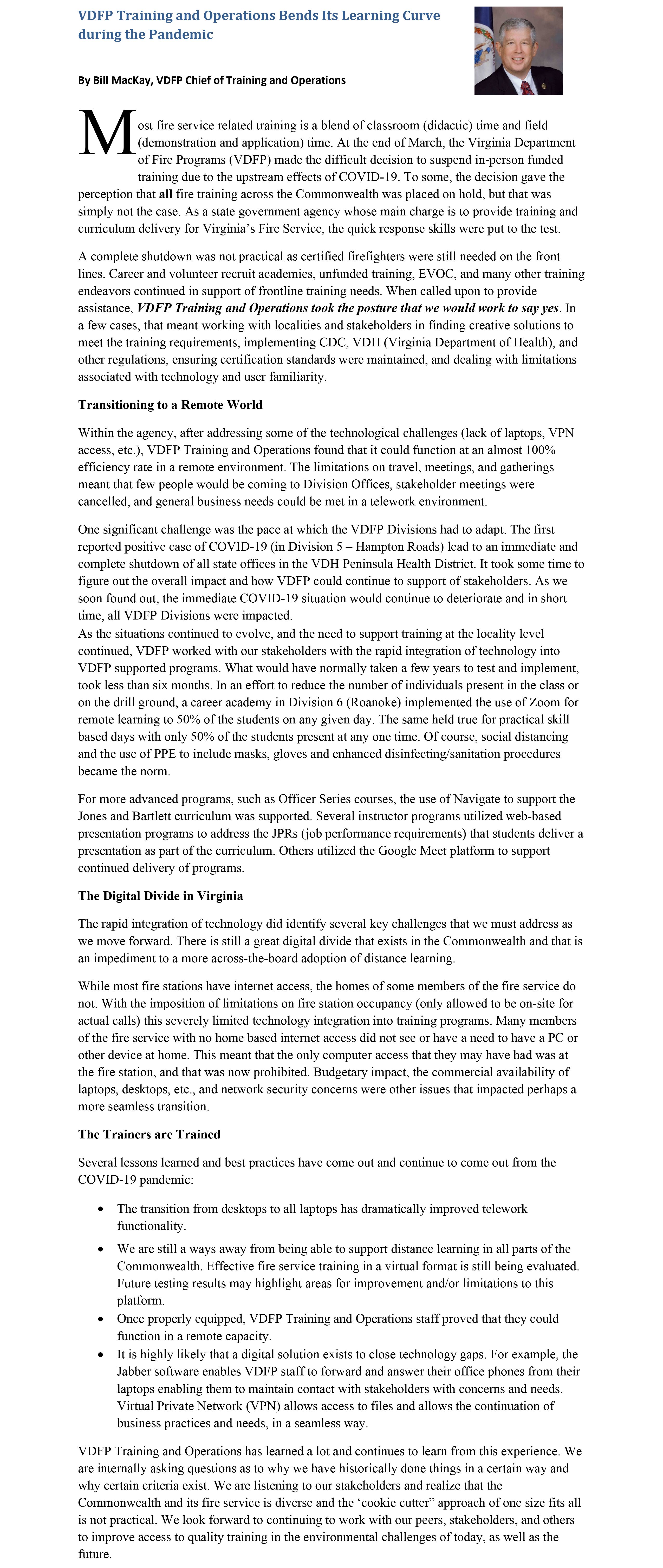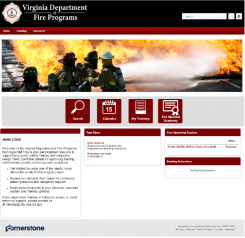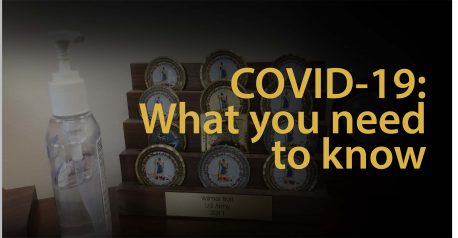
VDFP Training Descriptions at VFRC 2020
Wednesday, February 19, 2020 (NFPA 1033)
0800-1200
Focus on criminal procedure as outlined by title 19.2 of Virginia Code; basic rules of evidence; proper foundation and limits of expert testimony at trial, and; significant changes to criminal trial rules, set to begin on July 1, 2020, which will impact all Fire Marshal’s Offices throughout the Commonwealth of Virginia. Attendees will receive four (4) hours of “legal” in-service credit from the Virginia Fire Marshal’s Academy.
Presenter: J.W. Senter, Assistant Fire Marshal, Newport News Fire Department
1:00- 3:00
- Flame Jetting Awareness and Investigative Challenges
Over the last several years, science demonstrations and experiments in school settings have gone terribly wrong. Popular Science experiments conducted regularly in schools have resulted in critical injuries to students from pre-school to high school, and their teachers. When the conditions are just right, a hand-held container of flammable liquid being poured near an ignition source can shoot out a 15-foot jet of flame. The phenomenon, called flame jetting, is a serious, largely unknown danger that is both devastating and deadly. This presentation will:
- Provide a review of the research conducted to correctly identify flame jetting;
- Define hazardous combinations in the educational setting
- Review public education strategies aimed at ending flame jetting hazards
- Review the other areas affected by flame jetting and what is being done
- Detail possible solutions for prevention
- Ensure investigators are correctly identifying the causes of these incidents.
Presenters: Battalion Chief Kerwin A. McNamara, Connie McNamara
3:00-5:00
- UAV Familiarization and Awareness
In the ever-changing fast paced world of unmanned aerial vehicles, this course aims to clarify misinformation with respect to rules, enforcement and current threats. Using a plethora of videos and discussion point’s, participants will engage and interact to discuss topics including:
- How first responder are utilizing UAV technology
- Type of Operators
- Hobbyist vs Commercial UAV rules
- Airspace and Privacy
- VA specific drone law
- “What would you do” LEO/UAV interactions
- Malicious actors and UAV related threats
- Government response and mitigation
Presenter: SA Dante Robinson, Virginia Fusion Center
Thursday, February 20, 2020 (NFPA 1031)
0800-1200
(Lessons and Pit Falls in Blasting Code Enforcement)
Blasting is a highly regulated industry and as a standard of practice, commercial blasting firms doing business in Virginia make every effort to follow applicable federal, state, and local regulations to ensure personal safety and to prevent damage to property. FMs work closely with the industry to ensure they comply with all regulations and performs timely investigations whenever complaints arise. If the FM has reason to believe that blasting is occurring outside of the established regulations they will suspend or terminate permit(s) until compliance is achieved.
But what happens when it isn’t quite so cut and dry? Historical markers and districts, hand dug wells, monuments, and implosive devices to splice power lines, mis-fires and throw rock. When and how does NFPA 495 and the ATF Federal Explosive Law and Regulations apply to the SFPC?
We are going to address the basic blasting provisions the SFPC, expand to NFPA 495 and ATF explosive laws and then discuss several cases that just don’t fit the norm.
Presenter: Chief Fire Marshal Linda Hale, Loudoun County Fire & Rescue Department
1:00-5:00
The 2015 SFPC – How to navigate the (N), applicable building code and section deleted:
The 2015 edition of the SFPC underwent a dramatic change in appearance that was a “rewrite” to remove unenforceable language from the code. The end result caught many fire code enforcement personnel off guard. The words “section deleted”, “applicable building code” and the symbol “(N)” now consume much of the code. This program will review the 2015 SFPC and discuss how to navigate the respective changes and discuss what this really means for the fire code enforcement community. This program will also review the development of the 2018 SFPC and how the fire inspector can participate in the code development process.
Presenter: Gerry R. Maiatico, Warren County Department of Fire & Rescue Services
Friday, February 21, 2020 (NFPA 1031)
0800-5:00
NFPA 25 Step-by-Step Inspections and Tests
This one-day seminar provides a comprehensive look at the roles and responsibilities of the AHJ, the service provider and the owner of water based fire protection systems and will highlight the requirements of NFPA 25. Using NFPA 25 as a guide, the session reviews procedures for inspecting sprinkler system components along with procedures for many common tests performed by inspectors. The session is deigned to be interactive with attendees having the opportunity to discuss the various options for the complete and efficient inspection and testing of sprinkler and related systems. This seminar will benefit inspectors, contractors, AHJ, and property owners.
Presenter: Bob G. Caputo, CFPS, CET, instructor for American Fire Sprinkler Association & NFPA
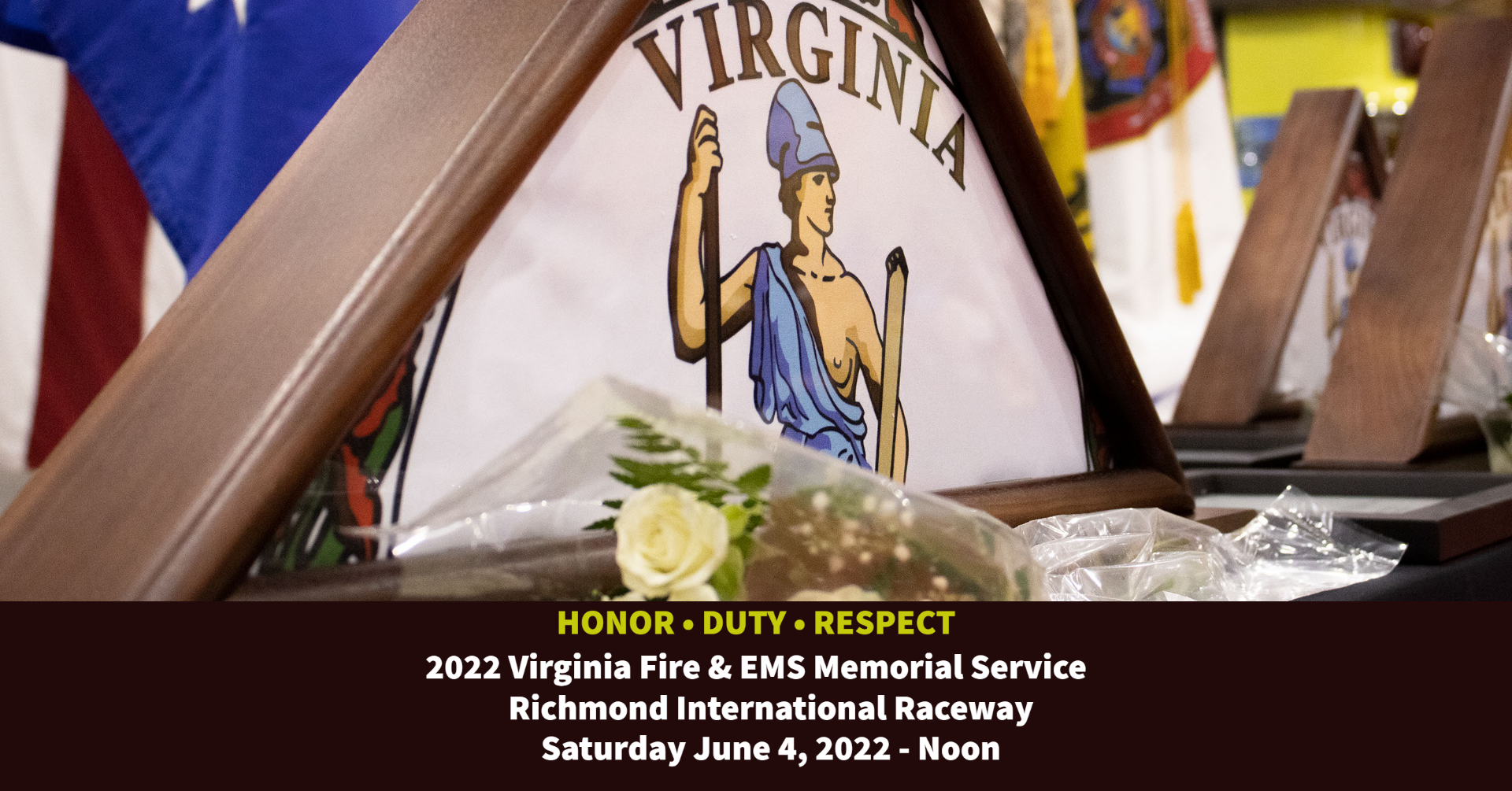
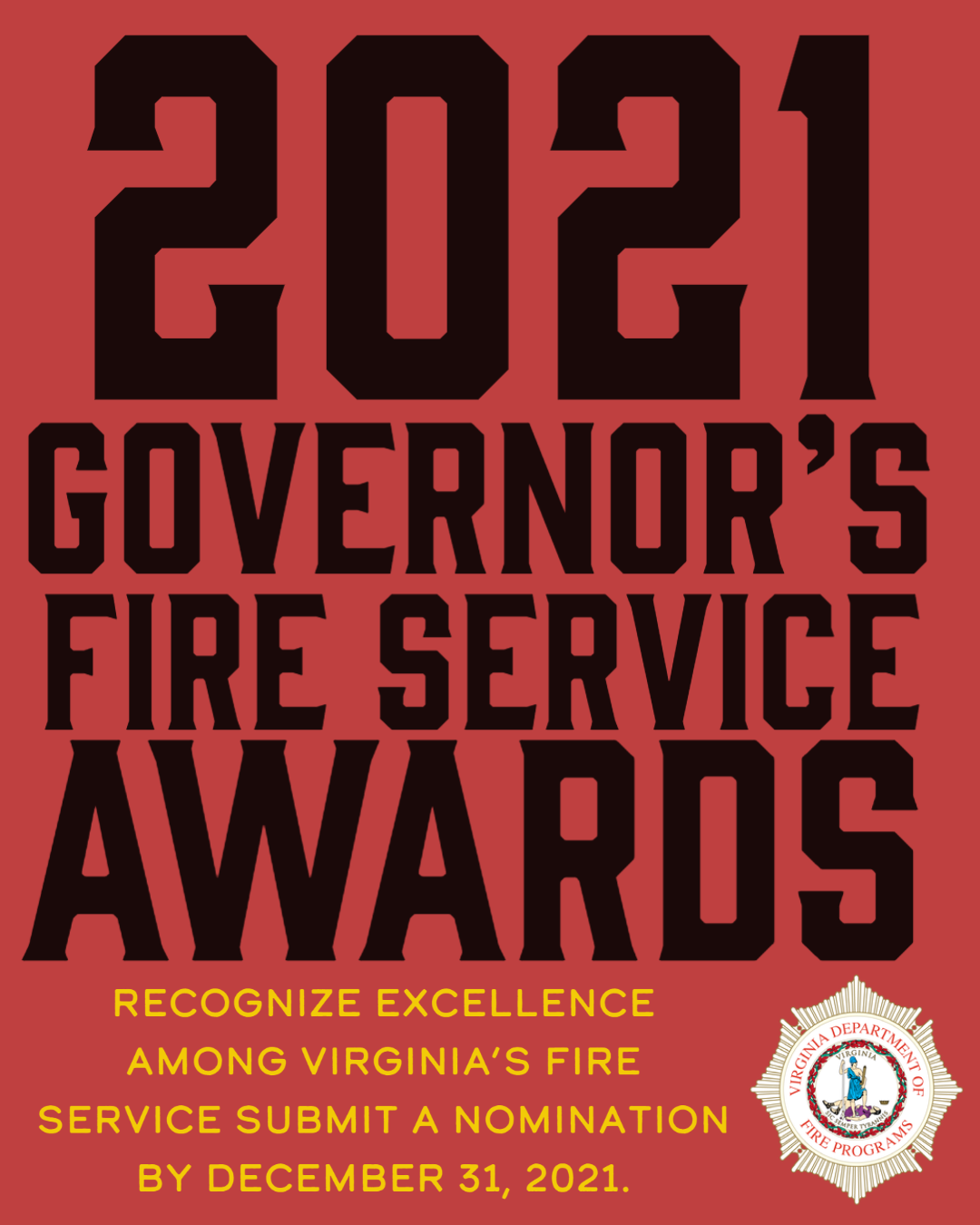 RICHMOND – November 3, 2021 – The Virginia Department of Fire Programs, a leader in enhancing public safety, in conjunction with the Virginia Fire Services Board, are seeking nominations for the 2021 Governor’s Fire Service Awards, which honors and recognizes excellence in Fire Services in the Commonwealth. The annual Governor’s Fire Service Awards is presented in eight categories during the Virginia Fire Rescue Conference held in February at the Virginia Beach Convention Center.
RICHMOND – November 3, 2021 – The Virginia Department of Fire Programs, a leader in enhancing public safety, in conjunction with the Virginia Fire Services Board, are seeking nominations for the 2021 Governor’s Fire Service Awards, which honors and recognizes excellence in Fire Services in the Commonwealth. The annual Governor’s Fire Service Awards is presented in eight categories during the Virginia Fire Rescue Conference held in February at the Virginia Beach Convention Center.